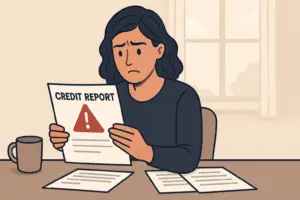As New York’s highest court, the Court of Appeals noted in Schneider v. Phelps, 41 N.Y.2d 238, 243 (1977),
“The purpose of usury laws, from time immemorial, has been to protect desperately poor people from the consequences of their own desperation. Law-making authorities in almost all civilizations have recognized that the crush of financial burdens causes people to agree to almost any conditions of the lender and consent to even the most improvident loans. Lenders, with the money, have all the leverage; borrowers, in dire need of money, have none. In recognizing this problem, the courts have drawn a delicate balance by both enforcing legitimate business obligations and by protecting impoverished debtors from improvident transactions drawn by lenders and brought on by dire personal financial stress.”
New York, like most states, addressed these concerns by creating both civil and criminal usury caps, above which a lender may not charge. New York’s civil usury limit is 16 percent per year. New York’s criminal usury limit is 25 percent per year.
Unfortunately, not every company operating in New York has adhered to the laws and regulations applicable to them. Midland Funding LLC, one of the largest debt collectors in the United States, claimed that it was exempt from New York’s usury laws because it had purchased the consumer debts on which it was trying to collect from national banks, which are exempt from most usury limits under the National Bank Act.
Our firm, Schlanger Law Group, LLP challenged Midland’s practice and argued on behalf of over 58,000 class members that Midland was required to abide by New York’s usury laws — even if it had purchased the debts from national banks that were themselves exempt. After almost eight years of litigation, we are pleased to announce that on September 12, 2019, the Southern District of New York gave final approval to a settlement agreement that resolved the litigation and obligated Midland to provide $9.25 million in balance credits, as well as $555,000 in cash to New York consumers.
Getting to this point was not easy, though. In order to achieve this strong result, the attorneys at Schlanger Law Group, LLP — based out of New York City & Jackson, MS — spent thousands of hours fighting for the rights of consumers over the better part of a decade.
This included appealing an early, negative decision to the Second Circuit Court of Appeals, and litigating against Midland and its numerous allies in the banking industry on the issue of whether the case should be heard by the U.S. Supreme Court. Schlanger Law Group’s dedication to their clients and the rule of law helped thousands of consumers recover compensation.
Identifying Illegal Collection Practices
In November 2011, Schlanger Law Group filed a complaint against a purchaser of consumer credit card debt called Midland Funding, LLC, alleging that Midland was violating New York state law concerning maximum interest rates. Specifically, according to New York Penal Law §190.42, it is a class C felony to charge more than a 25 percent interest rate on any loan, including credit cards. We argued that by charging more than was allowed under the criminal usury statute, Midland was violating the Fair Debt Collection Practices Act (FDCPA), which is a federal law that prohibits false, deceptive, and unfair debt collection, as well as New York General Business Law §349, which makes it illegal for any business to engage in a deceptive act or practice in the conduct of business.
The Winding Path Through the Courts
Obtaining a successful resolution in the In Re Midland Funding LLC Interest Rate Litigation required years of tenacious and dogged effort, as well as the persistence to withstand setbacks along the way. In fact, the Southern District of New York initially threw out the case, agreeing with Midland that it was not subject to the New York usury law and enjoyed exemption under the National Bank Act.
However, Schlanger Law Group refused to give up and successfully argued before the Second Circuit Court of Appeals that the National Bank Act did not apply to debt collectors where a national bank no longer owned or serviced the accounts. In 2015, the Second Circuit agreed that Midland was not exempt under the National Bank Act and sent the case back to the trial court to resolve various other issues concerning application of New York’s usury laws to these collection accounts.
Still, the legal drama regarding whether the National Bank Act applied to debt collectors such as Midland did not end there. First, Midland asked the Second Circuit to reconsider its decision or hear the case en banc (i.e., in front of all thirteen active Second Circuit judges, instead of a three-judge panel). When that was unsuccessful, Midland subsequently made a request to the United States Supreme Court to review the decision of the Second Circuit. A collection of interested parties including bankers’ associations, the U.S. Chamber of Commerce, Public Citizen, Public Justice, the National Association of Consumer Advocates, The Center for Responsible Lending, and many others submitted briefs to the Court, and the Supreme Court asked for the views of the U.S. Solicitor General before ultimately declining to hear the case.
The case then returned to the District Court. Midland next argued that it was allowed to charge over 25 percent interest because the credit card contracts in question all had “choice of law” provisions that required the Court to apply the law of states that had no usury caps. Midland also argued that New York’s usury laws didn’t apply to interest charged after default. In a decision issued in early 2017, the District Court disagreed, finding that the 25 percent criminal usury cap represented a fundamental public policy of the State of New York and therefore could not be circumvented by means of a choice of law clause. The District Court denied Midland’s motion for summary judgment and ruled that the case could proceed on a class basis.
The parties continued to vigorously litigate multiple disputes regarding what documents and data needed to be disclosed and a variety of other procedural and substantive issues.
Ultimately, the parties entered into negotiations that resulted in the settlement agreement recently given final approval by the Court. The settlement allowed class members to claim over nine million dollars in balance credits, as well as a $555,000 in cash relief. Participation in the claims process was robust, and there were no objections by any of the class members. Any settlement funds that don’t get distributed (e.g. because a class member doesn’t cash his or her check), will be distributed to the Empire Justice Center, a non-profit organization that advocates on behalf of New York consumers state-wide.
Although the case is now closed, Schlanger Law Group continues to work on a variety of other cases involving interest overcharges, hidden fees, and other lending and collection misconduct.
Schlanger Law Group, LLP Fought for the Rights of Consumers
Every consumer deserves a fair shake when dealing with lenders and debt collectors. Schlanger Law Group works every day to even the playing field and hold predatory lenders, overzealous debt collectors, and others accountable under federal and state law. We are proud of our work on the Midland Funding LLC Interest Rate Litigation: over the course of eight-plus hearings in multiple courts, and thousands of hours of work, our attorneys – through hard work and perseverance – were able to achieve an extremely positive result.
If you are dealing with interest overcharges, hidden fees, false credit reporting, or other similar misconduct, we may be able to help you hold responsible parties accountable. Call our firm today or contact us online to get your case started.







